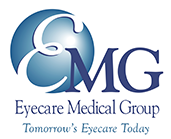
September is Healthy Aging Month. This is the perfect time for organizations to promote awareness around age-related conditions.
It’s also a good time to discuss how to prevent and manage them. Some of the most common age-related conditions are eye diseases like glaucoma or diabetic retinopathy.
While many eye conditions are common among older patients, patients of every age should be aware of them. For this reason, you should maintain good habits to lower any risks later in life.
Keep reading to learn more about Healthy Aging Month!
Risk Awareness
The most common age-related eye conditions include:
- Cataracts
- Glaucoma
- Age-related macular degeneration (AMD)
- Diabetic retinopathy
These conditions usually develop as a result of aging. But you’re more likely to develop glaucoma, AMD, or diabetic retinopathy if you have a parent or grandparent who had one of these conditions.
Pre-existing conditions, especially diabetes, can also increase your risk for not only diabetic retinopathy but any of these eye conditions.
It’s important to know what your personal risk is so you can manage your health. If you’re at high risk, you may want to be more aware of your health and see an eye doctor more frequently, even if you’re younger.
Maintaining Your Health
Age-related eye conditions are associated with and can worsen due to several factors, including:
- Diabetes
- Hypertension
- Heart disease
- Obesity
These conditions also can have a hereditary factor. They are often preventable if you stay healthy.
Being in good shape and living a healthy lifestyle when you’re young is the best way to stay healthy as you get older. Staying healthy is often simply a matter of making good choices.
Practice Good Habits
Want your eyes to stay healthy? The easiest way to do this is to practice good habits. These include:
- Eating a balanced diet
- Staying active
- Drinking responsibly and in moderation
- Avoiding tobacco products
These habits can go a long way to staying healthier for longer. Also, always wear sunglasses when you go outside!
UV damage can erode your eye health over time. Keeping your eyes protected now may save you from issues when you’re older.
Unfortunately, even the best habits can’t prevent age-related eye conditions. They can lower your risk and make it less likely that you’ll develop a condition earlier in life.
There’s no guaranteed way to prevent them. Even if many of these conditions don’t have a cure, many are easy to manage.
The key is to detect them early. For most of these conditions, besides cataracts, once the damage is done and you experience vision loss, that vision is gone for good.
It’s also hard to tell if you have glaucoma, AMD, or diabetic retinopathy. The only real symptoms they present are vision loss in the advanced stage. By that time, the damage has already occurred.
This is why the most important habit you should get into is regular eye exams. If your risk is higher, you should have them at least every two years before you even turn 40.
For everyone else, the best practice is bi-annual exams after 40 and annual exams after 50. You can also talk to your doctor about their recommendation based on your medical history.
As long as these conditions are spotted early, you can manage them to prevent further vision loss. So stay vigilant and keep up with your eye doctor, whatever your age!
Ready to kick off Healthy Aging Month with healthier eyes? Schedule an appointment at Eyecare Medical Group in Portland, ME now!





